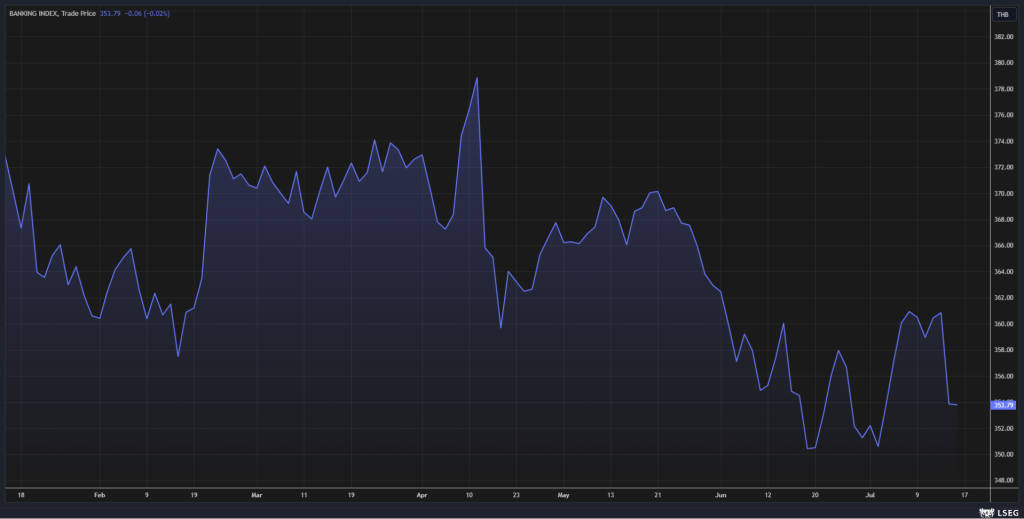Thailand’s banking stocks are grappling with renewed uncertainty as concerns over future loan assets resurface, just as the sector was poised to rebound from prior issues of bad asset quality and the conclusion of a high-interest rate cycle.
The banking index recorded a near 2% decline on Monday, reflecting apprehensions within the sector regarding potential increases in provisions and non-performing loans (NPLs) stemming from Energy Absolute’s looming default on debentures. This development comes as a setback to the banking industry’s efforts to regain stability and growth, highlighting the fragility of the financial landscape amidst ongoing challenges and risks.
Thailand’s banking stocks have been hit with another negative factor, raising concerns of future loan assets, just as they are about to recover from bad asset quality and the end of the high interest rates cycle.
The banking index dropped nearly 2% on Monday amid concerns in the banking sector that there could be higher provision and NPL due to the possible default in Energy Absolute’s debentures.
The SEC has charged the CEO and two executives from Energy Absolute (EA) with procurement fraud involving transactions from 2013 to 2015, which allegedly netted Bt3.5 billion. This has prompted a case referral to the Department of Special Investigation and the Anti-Money Laundering Office.
According to an analysis report by UBS, banks should classify Bt30 billion in loans as non-performing ones looms, which will particularly affect upcoming plans to refinance Bt5.5 billion in maturing debentures for EA.
Key banks like SCB, KKP, Krungsri, and Mizuho face significant exposure to EA, according to the details written in EA’s 2023 annual report.
Based on assumptions by UBS, SCB and KKP could potentially see an EPS impact of 8-9% in 2024 due to high provisioning for associated losses compared to peers. Meanwhile, this could also impact the DPS of SCB and KKP by around 9-17%.
UBS disclosed that this scandal is expected to negatively influence the SETBANK Index this week, with heightened impacts on SCB and KKP, while others like TTB, KBANK, and KTB might face lesser repercussions due to their low loan risks.
Overall, this incident could erode investor confidence in the banking sector, underscoring a growing concern of corporates’ financial status after several default and fraud since 2023, thereby affecting broader market sentiment and the valuation of financial sector stocks.





